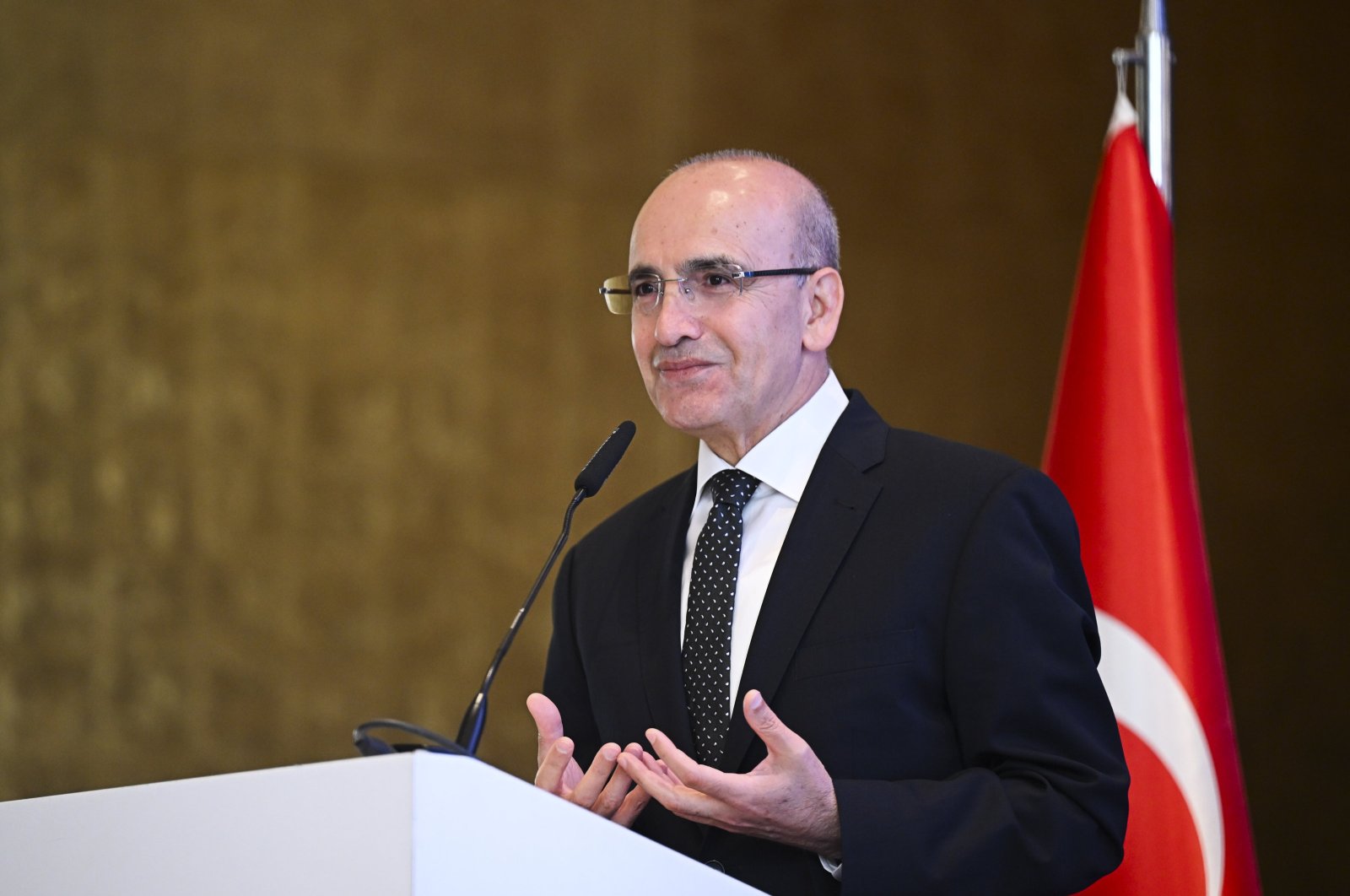
Treasury and Finance Minister Mehmet Şimşek on Friday wrapped up his trip to London after engaging with investors at a series of meetings, where participants said Türkiye stood out positively among emerging markets.
Şimşek arrived in the British capital on Wednesday to promote the country's yearlong policy pivot, which seeks to reinforce confidence and attract foreign capital.
At a Deutsche Bank-hosted meeting on Thursday, the minister spoke about what has been done in the Turkish economy in the last 12 months and the potential steps to be taken in the next year and the long-term, according to a meeting participant.
Investors at the meeting said that "Türkiye had stood out positively among emerging markets" following the change in economic policies over the last year, the participant told Reuters.
Moreover, several participants, including Deutsche Bank executives, indicated their plans to increase investments in Türkiye in the near future.
According to information provided by the participants, more than 150 investors with funds worth 50 trillion euros ($53.6 trillion) attended the meeting.
Türkiye has been seeking to court investors after it started reversing years of loose policy following the general and presidential elections last May.
It has been pursuing efforts to rein in elevated inflation, curb budget and current account deficits and rebuild foreign exchange reserves.
Speaking on Thursday at an event in London organized by the Chatham House think tank, Şimşek said Türkiye is on the verge of a sharp fall in inflation, predicting it would slow to mid-teen levels next year and help bring more international investment.
"The market is beginning to believe that the (medium-term economic) program that we put together can enable us to control inflation and bring it down," the minister said.
Inflation reached an annual 75% in May, which is said to mark the peak before a series of interest rate hikes and a relatively stable Turkish lira bring relief.
"Rebuilding monetary policy from scratch has taken some time and now we are on the verge of sustained, strong disinflation," Şimşek said.
"Inflation might be ... low 40s or high 30s later this year, and next year is mid-teens and then following that single digits."
He said that international investors would start to take a longer-term interest in Türkiye, having already begun to dip their toes back into its shorter-term bond markets.
The meetings on Thursday included investors from Europe, America, the Middle East and the Far East, focusing on fixed-income securities, equities, infrastructure, and venture capital investments.
The sharp decline in the cost of insurance against sovereign default, along with outlook upgrades and positive comments from rating agencies, encourages the government.
Şimşek said Türkiye's credit default swap (CDS) fell from 700 basis points to approximately 250 basis points within a year, indicating improved market confidence. He also noted that access to foreign markets has significantly improved.
Şimşek has repeatedly said Türkiye's monetary policy is fully functional and the policy mix going forward will be more supportive, but more time is needed to see its effects and convince society at large.
"Patience is needed. Perseverance is needed," Şimşek said on Thursday. "There is no real substitute for hard work."
He has insisted that tackling inflation remains the top priority, alongside enhancing competitiveness, boosting productivity and improving the investment climate.
The country's central bank delivered aggressive monetary tightening to cool growth in price gains, which remains the biggest challenge for authorities.
Since June last year, it has gradually lifted its benchmark policy rate to 50% from 8.5% and has said it would "do whatever it takes" to prevent the inflation outlook from deteriorating.
"Inflation peaked in May and looks set to decline rapidly," Şimşek said.
